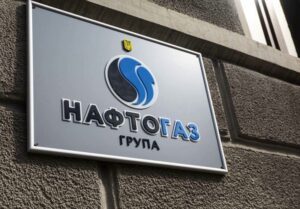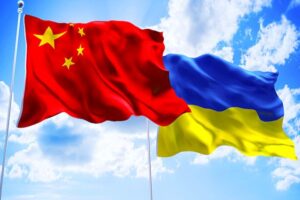
The net consolidated profit of Naftogaz Group in January-March 2024 increased by 3.7 times (by UAH 17.839 billion) compared to the same period last year, to UAH 24.414 billion.
According to the consolidated financial statements published on Naftogaz’s website, its sales revenue for the first half of the year increased by 28.1% (by UAH 31.456 billion) to UAH 143.373 billion, gross profit by 4.1 times (by UAH 33.479 billion) to UAH 44.377 billion, and operating profit by 2.1 times (by UAH 14.907 billion) to UAH 28.904 billion.
According to the group’s press service, the improvement in financial results was achieved, in particular, due to an increase in revenues from the sale of gas, oil and petroleum products, as well as natural gas distribution services.
The key companies that showed a profit in the first half of 2024 are Naftogaz of Ukraine, Ukrgasvydobuvannya, Ukrtransgaz, Ukrnafta, Gas Supply Company Naftogaz of Ukraine, and Ukrtransnafta.
In addition, in January-June 2024, the group’s companies paid UAH 44 billion in taxes to the state budget, or 7.5% of all payments controlled by the State Tax Service of Ukraine.
As reported, in 2023, the net consolidated profit of Naftogaz Group amounted to UAH 23.1 billion, compared to a loss of UAH 79.1 billion in 2022.

Ukrainian Foreign Minister Andriy Sybiga met with his Chinese counterpart to discuss the development of bilateral relations and trade.
“Together with Andriy Yermak, we met with Chinese Foreign Minister Wang Yi. We thanked China for its support of Ukraine’s sovereignty and territorial integrity,” he wrote on the social network X on Thursday night.
According to Sibiga, the parties focused on the next steps in the development of bilateral relations and trade. They also discussed prospects for further contacts.
Sibiga noted that they briefed on Ukraine’s efforts to implement the Peace Formula and exchanged views on the principles of achieving a comprehensive, just and lasting peace for Ukraine based on the UN Charter.
Quotes of interbank currency market of Ukraine (UAH for $1, in 01.06.2024-30.06.2024)

Open4Business.com.ua

September 24, 2024, Kyiv – As part of the Access2Finance conference, after the panel discussion “Sources of Financing for Small and Medium-Sized Businesses (SMEs)”, an important event took place – the signing of a memorandum of cooperation between the Ukrainian Association of Fintech and Innovation Companies (UAFIC) and the Entrepreneurship Development Fund.
The memorandum was signed by Rostyslav Dyuk, Chairman of the Board of UAFIC, and Viktor Katrenych, Deputy Chairman of the Board of the Entrepreneurship Development Fund. The purpose of the agreement is to strengthen cooperation between the organizations to support regional economic development and strengthen the position of small and medium-sized enterprises (SMEs) in Ukraine.
The memorandum pays special attention to supporting veteran and women-owned businesses, which is one of the key aspects of social responsibility. The parties also intend to promote the implementation of the principles of sustainable development and ESG (environmental, social and governance criteria), which are important for ensuring sustainable economic growth and increasing the competitiveness of Ukrainian entrepreneurs.
The parties agreed on joint initiatives aimed at increasing SMEs’ access to finance, promoting regional economic activity, and introducing the latest technological solutions for business development.
“The signing of this memorandum is an important step for UAFIC towards expanding opportunities for small and medium-sized enterprises in Ukraine. It is important that as part of our cooperation we will focus on supporting veteran and women-owned businesses, which are the basis for creating a more inclusive and sustainable economy. In addition, the implementation of ESG principles will be a key aspect for increasing the competitiveness of Ukrainian enterprises,” said Rostyslav Dyuk, Chairman of the UAFIC Board.
“For the Fund, the top priority is to support Ukrainian business, especially in such difficult times. In addition, this is exactly the period when it is necessary to involve businesses in the implementation of ESG standards and further develop in this direction for the successful implementation of economic activities. That is why we are pleased to sign a memorandum with UAFIC to jointly support entrepreneurs in our country,” said Viktor Katrenych, Deputy Chairman of the Board of Ford Entrepreneurship Development.
The signing of this memorandum is an important step in strengthening Ukraine’s economy, improving the business climate and supporting entrepreneurship that meets the principles of sustainable development.
The memorandum was signed at the Access2Finance conference, which was supported by the USAID Project Investing for Business Sustainability.
COOPERATION, Entrepreneurship Development Fund, FINTECH, MEMORANDUM

The European Bank for Reconstruction and Development (EBRD) is exploring the possibility of creating by the end of 2024 – early 2025 a system of war risk insurance for domestic transportation and goods transported in Ukraine, said Francis Malizh, EBRD managing director in the financial institutions sector.
“We are considering the possibility of war risk insurance for transport, domestic transport, which should come to the market at some point, probably by the end of the year or early next year,” Malizh said at the second annual forum ‘Ukrainian exports: the window opens’ organized by the Economic Pravda publication.
He specified that the new model of insurance against military risks may apply to trucks and railroad cars. Also, it will serve to insure goods in transit in the country.

Founded in 2004, N-Trans is a leading provider of integrated logistics services in Ukraine. The company’s core business areas include international road and container transportation, customs terminal services, customs clearance, and warehouse logistics. The company offers a full range of solutions for the transportation of goods of varying complexity.
Despite the challenging wartime conditions, N-Trans continues to grow and expand its geography, which covers Europe and Asia. Among the company’s clients are such international giants as Mitsubishi, Hyundai, Volkswagen, Audi, Scania, Iveco, BYD and Haval.

CEO Denis Fomenko said: “We are confidently moving forward despite all the challenges. Our main goal remains to expand the geography of optimal logistics routes and improve the quality of service for our customers.”
The company’s financial performance confirms its steady growth. In 2023, N-Trans’ turnover amounted to UAH 305 million, up 267% compared to 2022. In the first half of 2024, the turnover reached UAH 172 million, up 14% year-on-year.
“N-Trans operates a modern functional logistics terminal located on the 45th km of the Kyiv-Chop highway. The terminal includes:
Vehicle arrival area of 24,100 m²
Closed-type temporary storage warehouse with an area of 164 m²
An open-type customs warehouse with an area of 36,300 m²
Open commercial warehouse with an area of 60,000 m²
Customs post of the Kyiv Customs Service
Phytosanitary control point of the State Service of Ukraine for Food Safety and Consumer Protection in Kyiv region